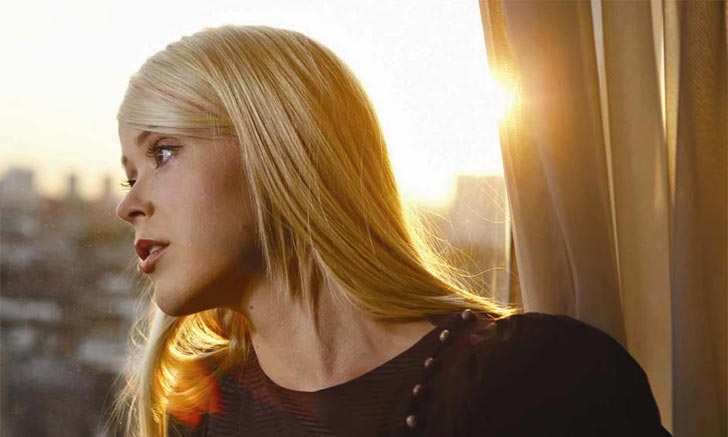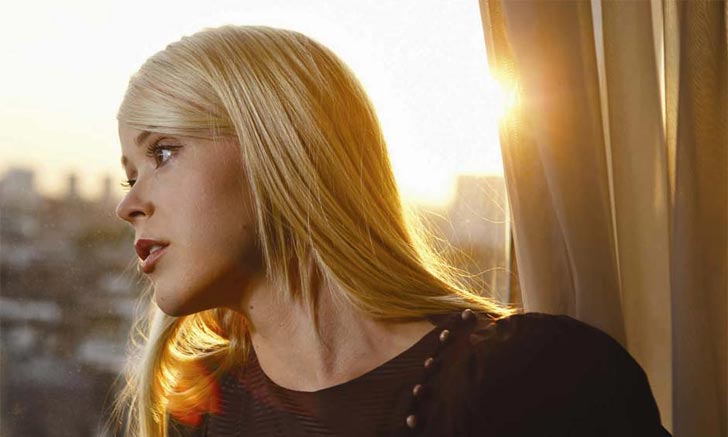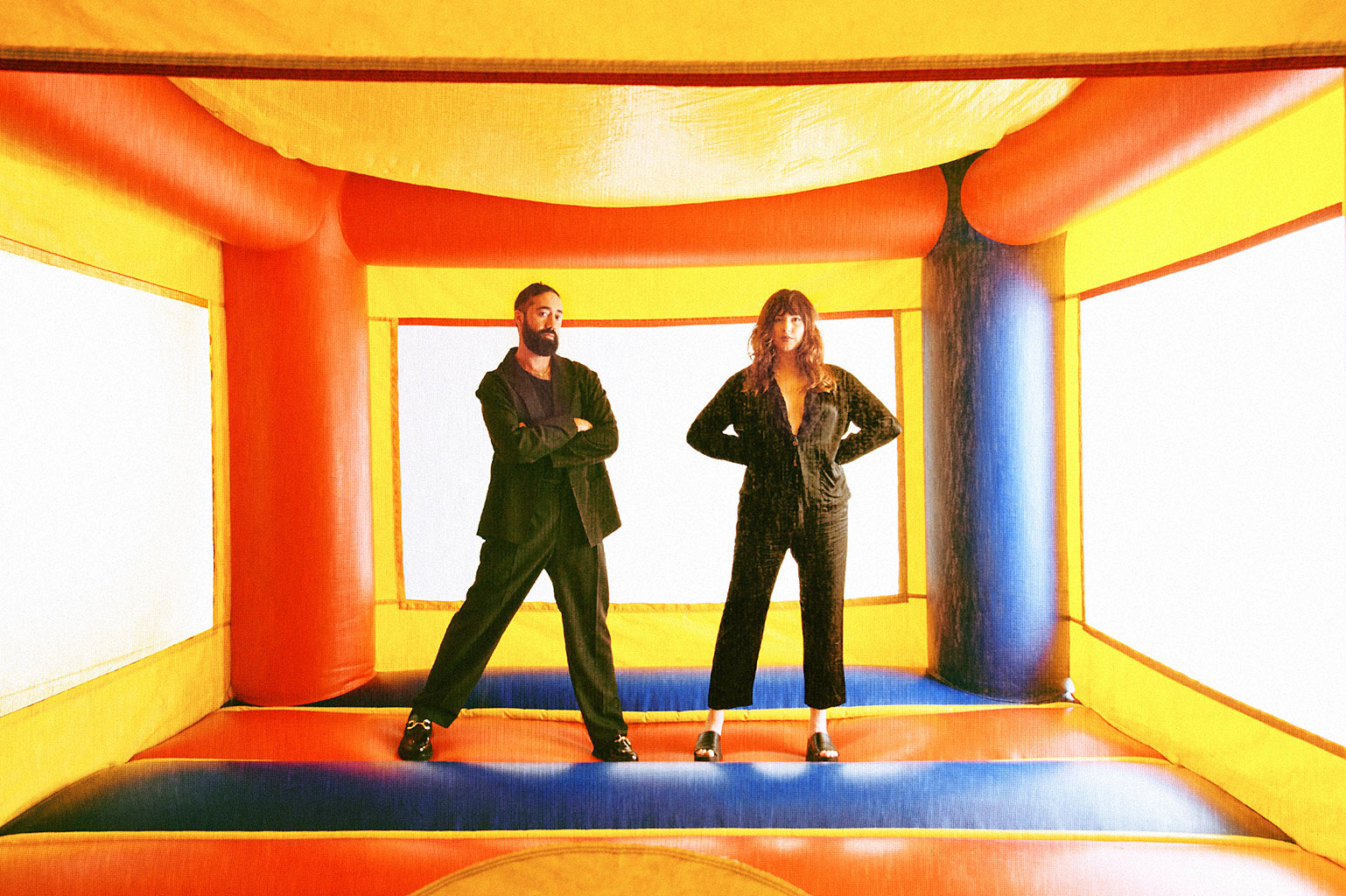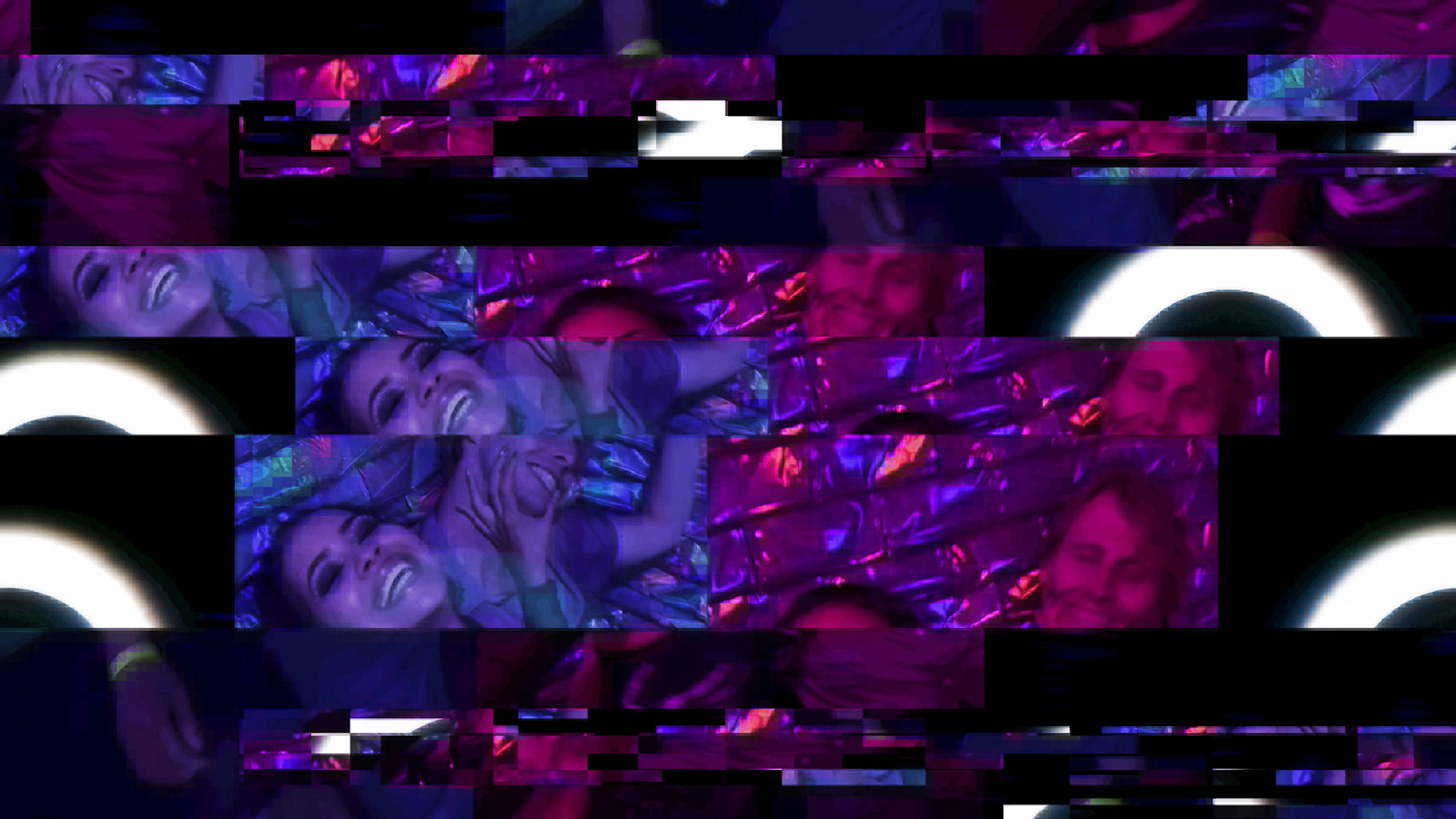
Jesse C. Dienner (JCD): First off, thank you very much for agreeing to do this.
Tina Dico (TD): You’re welcome.
JCD: We actually met two years ago when you were playing Café Du Nord.
TD: In the autumn of 2009.
JCD: Yes.
TD: It was just me and Helgi [Hrafn Jonsson].
JCD: Yes, it was. And what had prompted me to go to that show, in the first place, was an article that I read about you in W Magazine…
TD: That would have been more of a fashion piece.
JCD: [Laughs] It was, but there were some parts about your music and your life on the road, and I was intrigued. And now, here I am, full circle, getting to be the one interviewing you and writing a piece on you. First off, is this the first time you’ve been back to San Francisco since that show in 2009?
TD: Yes.
JCD: And, what do you think of our fair city?
TD: I love it. This is the first time on the tour that we’ve had a slight sense that it is heading toward spring or summer. It’s a very welcome ray of sunshine. This is an amazing city — even based on our in-and-out experience. San Francisco gives off a very good first impression.
JCD: It definitely does. I was just talking with [road manager] John, who mentioned that several years ago you were here and you rented bicycles and biked around the area?
TD: [Laughs] That was amazing! But not for him so much! He’s not used to riding, so he was so sore!
JCD: He did mention that.
TD: Yes. He couldn’t walk for days afterwards. But it was amazing, riding over the [Golden Gate] Bridge and into the forest and seeing all the weird houses that are basically built into the forest. Places that you’d never even know existed. I’ve been here quite a few times… playing golf… going to the beach…
JCD: Who will be with you tonight at the show at The Swedish American Hall?
TD: Helgi will be with me again, tonight, and then we have drums and bass. Our drummer is also from Iceland, and our bassist is from Nashville.
JCD: What would you say are some of the differences between playing in the United States versus playing in Europe? I know that is a loaded question…
TD: That’s a tough question because America is so many different things at once, and so is Europe… I mean, comparing Spain to the United Kingdom, or the United Kingdom to Denmark… oh my god…
JCD: And you’ve lived in the United Kingdom? Where are you living now?
TD: I’m living in Copenhagen, and I am about to move to Reykjavik, Iceland, which again, is a completely different world. And, even going to these different cities in the United States, they vary so much, coast to coast, and I haven’t even visited much of the middle of the country…
JCD: Which definitely has a different flavor to it.
TD: What strikes me is that people over here in the United States are very, very open. People in Northern Europe look at people over here and think that they are born entertainers, in a way. I walk around with my little camera when I’m blogging, which I have done a lot in the past, and when I point the camera at someone from Denmark, they would completely freeze up and be awkward and not know what to say. But, when I do that at random people here, people are switched on, and they go for it in a big way. People are very open, which is also what I get from the reactions of the people at my shows; it is very emotional, and honest, and in-depth.
JCD: I like to hear that. Changing gears a little bit, but going off of the idea of the music being emotional… I always like to ask musicians, what inspires you? What makes you want to make music? What makes you keep doing it?
TD: That last question is a really good one; it’s a very relevant question. I know that, very early in my career, I got to a point where I realized I had gotten a lot of the shit — a lot of the angsty stuff — out of my system. You know, that stuff that I felt when I was I teenager, when I was writing songs in my basement and everything was so intense, and, ”Ahhh, life!” — as you are when you are a teenager. And I quickly got to a point where it was all about songwriting, and I take a step back, and it’s even more about learning to be and getting to know… [pauses]… how do I explain this?
JCD: [Laughs] Take your time.
TD: There are also quite a few aspects to why I keep making music. A short answer would be: this is what I do. This is my job now. I couldn’t stop even if I wanted to. I’m on a train; I’m on the ride.
JCD: But you are still enjoying it?
TD: I am still enjoying it. Very much.
JCD: Good.
TDF: I guess I am scared of realizing that life is quite short, quite random, and it just passes by if you are not careful about it. One day will take the other. Everyday life puttering about… and then it is over. And I think I am trying to fill my life with something special because that is what art has. Art will last forever; it doesn’t die with us, and music doesn’t die with us. It has a magic to it that I love, and creating something that way makes me feel that life doesn’t just slip through my fingers… and that it is not just day after day. It really makes me feel more intensely alive and it gives is a sheen of something magical and wondrous.
“Art will last forever; it doesn’t die with us, and music doesn’t die with us. It has a magic to it that I love, and creating something that way makes me feel that life doesn’t just slip through my fingers… and that it is not just day after day.”
– Tina Dico
JCD: That’s a great answer. Do you make any other kind of art? I know you blog — and I definitely consider writing in of itself to be an art — but do you paint, sculpt, collage…?
TD: I don’t paint… and to be honest, I am very bad at being a recipient of that kind of art. Funnily enough, I’m not a very visual person. And I like art to actually to tell me what the artist wants me to take out of the work. Abstract art is kind of lost on me. What is it that the artist is communicating about? So I guess that writing outside of music is what I do the most of and is what I would probably and will probably do more of at some point… to not put it to melody and rhyme anymore… but tell stories.
JCD: Speaking of stories, I encountered when I was reading up on you that you did a cover of John Lennon’s ”Working Class Hero” a few years ago and then, of course, Leonard Cohen’s ”Hallelujah,” which I think is interesting since you are an artist with deep and deliberate lyrical content, which makes it noteworthy when you sing someone else’s words … Is there a certain amount of choice in the covers that you do?
TD: It all happened for a reason. With ”Working Class Hero,” Yoko Ono and Amnesty International got together to do a campaign called Make Some Noise, where she allowed artists all around the world to record John’s songs, and people could then download them, and all the profits would go to Amnesty for this campaign. And I was one of the many artists who got to record one of the many songs. But, I was one of the few artists who actually go to perform it in front of Yoko Ono at the Amnesty office in London. It was her and Peter Gabriel and me and a lot of press and very few other people. I don’t think I’ve ever been so nervous in my whole life! I mean, can you imagine having to play a John Lennon song in front of Yoko Ono?! I was pretty terrified. And, it all happened in an office — no vibe. But that was pretty exciting, still. The Danish version of ”Hallelujah” was years back, when they decided to do a whole album of Danish translation versions of his songs. It was kind of before that stuff became something that was everywhere.
JCD: Are there any other musicians and songs that you’d like to one day pay tribute to?
TD: I didn’t think I’d ever feel like this but I sometimes feel that there are so many absolutely amazing songs out there that haven’t been given a proper chance. Sometimes a song just needs to be performed in a particular way for people to just go, ”Oh, my god!” Sometimes the easiest thing in the world is to take a good song that people are used to hearing in a particular way, like taking a fast up-tempo song and then turning it into something sad and beautiful. I’ve done it with Rihanna and a few other people, where then when people hear it they go, “This is such an amazing song… it makes me cry!” It could be Tori Amos doing “Smells Like Teen Spirit” or Gary Jules doing a Tears For Fears song. There are so many amazing songs, and sometimes it feels like it’s okay to pay tribute to stuff that has already been done, instead of making something new.
JCD: So, if you could be doing something else besides making music, what would it be? I know we discussed your passion for writing…
TD: It would definitely be writing, but also, one of the things I have really enjoyed about my career, apart from the creative aspect of making music, is the business side of things. I realize the music business may not be a great place to be at the moment, recognizing that there have been some very weird years. But, I started my own label [Finest Gramophone] back in 2000, but I will say that I love planning and working things out… Just to make things happen! Strategies! Plans! Big ideas! You know, that is what keeps me going: to have a dream of any kind! To have a goal and make it happen! And that could actually be within most lines of work, so I can see myself making big things happen wherever I was. You know, getting people “on it.” Get together the big plan and get people to work together on achieving the big things.
JCD: Being a musician, you are involved in three separate but related things: creating music, recording music, and performing music. How would you rank those three activities in order of preference? And maybe it has changed over time.
TD: It probably has changed over time a little bit. But I would say that up until now, it has not been the recording that has been my favorite. I have a hard time with it. In the studio, you have the option of being a perfectionist and that is tough, because I don’t want to be a perfectionist. One of the reasons I do music is to try and be in the moment and just let things happen the way they happen and to accept that what happens in that studio on the Monday would have sounded completely different if you’d recorded that vocal on a Wednesday. It would have been something else! But when you are in the studio, you can get very much in the head. You start being concerned with details only audible to dogs and bats. And I don’t really want to go there. That is what I like about being on stage: you have to let it wash over you and let it all out. If you mess it up or get on to a note from the wrong angle, you have to let it go and move on. Unfortunately, these days you’ll see everything on YouTube the next day! It is a drive for me to know that people are actually digging it and waiting to hear what comes next when I play live. I don’t get out the guitar for me, myself, and I. I do feel like I’m riding into a community of — I don’t know the English words for all of these words.
JCD: Oh, that’s okay. You can describe it another way.
TD: I guess I mean that I like performing because I can be together with other people, in these songs, when I perform. Playing live is a big part of that togetherness.
JCD: That would have been my guess, that performance was your favorite aspect of being a musician. I mean, being an outsider, being familiar with your music over the last couple of years, I can say that yes, your albums are great. But seeing you live two years ago, that was when it clicked. That was when I totally ”got it” about you. What comes across through your live show is even a cut above what comes across on the albums.
TD: I’m hoping that in the future, I will really get better at being in the studio and get better at enjoying being in the studio. I think it is going to happen; that the studio is going to feel like a playground more than it did in the past.
JCD: Surely… Any interesting stories from the road this year or last year? I was speaking to your rhythm section before this interview and they told me to ask you about your new favorite game?
TD: Yhatzee!
JCD: So you guys have been playing some vicious games of Yhatzee?
TD: Yes. Very. But interesting anecdotes… oh, god!
JCD: If nothing comes to mind, don’t worry about it.
TD: I am always bad at these quick little ”what’s your favorite…” questions… I can’t think of any stories!
JCD: Don’t worry about it.
TD: Aside from all those things that, as we say, ”stay on the road.”
JCD: Sure. We can respect that. Fair enough… One thing that I was very interested to ask you — and you’ll have to help me with pronunciation — the last album, The Road to…?
TD: Gavle.
JCD: Yes, The Road to Gavle. I heard that it was recorded at Electric Ladyland Studios.
TD: Yes, quite a big part of it was recorded there.
JCD: And, I remember reading somewhere that when you were growing up you were a big fan of Jimi Hendrix, so I can imagine being able to record in that studio was pretty awesome?
TD: It was pretty crazy. We had a bit of a stressful time at Electric Lady because I had to put down so many things in only five days. I was running around like mad! But I definitely tried to suck in the whole history of that place. It has a very nice vibe. It is quite psychedelic. It has some very psychedelic paintings on the wall. But, at the same time, it is an incredibly cool and well-functioning, wicked studio. It is amazing to record in these places because it has gotten to the point where you can pretty much record full-quality anywhere. So it is quite rare that you actually splash out and go to the good, old, proper studios where you pay a fortune every day. But, it does add some weight to the whole project and maybe it even does make you give a little bit more… something else… I don’t know… it certainly is a good feeling.
JCD: And, then that brings us up to now with your new release Welcome Back Colour. Where does this title come from?
TD: From Seattle, actually. From a walk that I took on the way to The Triple Door when we played there probably two years ago, and Welcome Back Colour was written on the window of a Department Store. It was a spring sale type thing. On one hand, it sounded really shallow, but for me, when I saw it, it struck me and made me think, that’s really sad because if we have to welcome them back, they’ve obviously been gone. And, to me it really struck a chord in my life. This sort of black and white feeling. I thought it would be nice to welcome back some colors in my own life. It was one of those moments where I thought: there’s a song there! And then, later, when I moved back to Copenhagen, I felt like it was a good title. Welcome back, color, in terms of the future and also in terms of all this stuff — this journey that I’ve been on so far. To see how… shit!…
[John, her road manager, arrives in the lobby of the hotel implicitly reminding us that it is time for Tina to head to The Swedish American Hall for sound check.]
TD: …to see how special it has been. To see all the colors of it… Ahhhhh, I’m sorry!
JCD: Don’t be sorry; that is a perfect way to end?
TD: Yeah?
JCD: Yes. Absolutely. I’m looking forward to the show tonight.
TD: So am I.







Wonderful interview!
OPENS THIS THURSDAY! ONLY THIS WEEKEND!
– V I V A – O Z – V E G A S –
FOR TICKETS – GO TO: http://www.thetripledoor.net/Calendar/event-ticket-options.aspx?eventNodeID=4676andperformanceID=2058